SUMMARY
This is AI generated summarization, which may have errors. For context, always refer to the full article.

MANILA, Philippines – President Ferdinand Marcos Jr. will be joining leaders from Southeast Asia in early September 2023 for the 43rd Association of Southeast Asian Nations (ASEAN) Summit in Jakarta, Indonesia.
The summit, as well as other related summits, will be ASEAN heads of state and heads of governments’ second gathering in 2023 and will be held in Jakarta from September 5 to 7, 2023. The first, held in idyllic Labuan Bajo, happened in May 2023.
The 43rd summit, in contrast to the 42nd, will be much bigger – representatives ASEAN dialogue partners will be arriving in Jakarta for summits throughout the week.
Here’s what you should know about Marcos’ third ASEAN Summit:
Who will be flying with him?
ASEAN Summits always require the participation of at least three Cabinet officials – the foreign affairs secretary, the social welfare secretary, and a country’s trade chief. Foreign Secretary Enrique Manalo has been confirmed to be part of the delegation, as well as Social Welfare Secretary Rex Gatchalian and Trade Secretary Alfredo Pascual.
Social development and trade are key pillars in all ASEAN gatherings.
Neither the Department of Foreign Affairs (DFA) nor the Palace has announced who will be joining the delegation, but based on Marcos’ many previous trips, it would not be unusual to see his cousin, House Speaker Martin Romualdez, join the delegation.
First Lady Liza Araneta-Marcos is another constant presence in presidential trips, including ones for regional summits.
What will leaders be speaking about?
The 43rd summit, as in all previous summits, will deal primarily with security and trade issues that affect the region.
The Indo-Pacific has become a flashpoint for geopolitical tensions, including the growing competition between China and the United States.
ASEAN Chairman and summit host Indonesia says their turn at the helm “focuses on making ASEAN a stable and peaceful region; as the anchor of world stability.”
Top issues for the region and beyond include the situation in Myanmar and the junta’s apparent non-compliance of the five-point consensus, Russia’s war against Ukraine, great power competition between the US and China, China’s actions in the South China Sea (of which it has overlapping claims with several ASEAN members), and the economy following the COVID-19 lockdown years back.
Host Indonesia’s manifesto is telling: “ASEAN must consistently uphold international law and not become a proxy for anyone. ASEAN must maintain its internal peace in Southeast Asia and the Indo-Pacific region. ASEAN must also become a dignified region that upholds human values and democracy. All of this can only happen if ASEAN continues to strengthen its centrality.”
What events are Marcos attending?
At least 13 leaders-level summits – or gatherings attended by heads of state or government or high-ranking officials of ASEAN and their partners – will be happening in Jakarta.
The summits Marcos will be joining include:
- 43rd ASEAN Summit Plenary Session
- ASEAN-Indo Pacific Forum
- 43rd ASEAN Summit Retreat Session
- ASEAN-China Summit
- ASEAN-South Korea Summit
- ASEAN-Japan Summit
- ASEAN-US Summit
- ASEAN-Canada Summit
- ASEAN Plus Three Summit
- ASEAN-India Summit
- ASEAN-East Asian Summit
- ASEAN-Australia Summit
- ASEAN-UN Summit
ASEAN Plus 3 refers to all ASEAN members and South Korea, Japan, and China. Meanwhile, the ASEAN Indo-Pacific forum is the first of its kind and the 43rd summit’s flagship event, introduced by Indonesia.
The ASEAN-East Asian Summit includes all ASEAN members and Australia, China, India, Japan, New Zealand, the Republic of Korea, the Russian Federation, and the United States of America.
Marcos is also expected to meet several world leaders, including newly-installed Cambodian Prime Minister Hun Manet, South Korean President Yoon Suk Yeol, Vietnamese Prime Minister Pham Minh Chinh, and upcoming ASEAN member Timor Leste’s Prime Minister Xanna Gusmao.
The Philippine president may meet with several more leaders, but those meetings have yet to be confirmed, according to the DFA.
Marcos is likely to also hold meetings with business personalities on the sidelines of the summit.
What issues will Marcos and the Philippine bring up?
According to Assistant Secretary for ASEAN Affairs Daniel Espiritu, economic transformation post-COVID and security are top concerns.
Espiritu also said Marcos will be highlighting efforts to improve food and energy security, promote digital and creative industries and small businesses, address the impacts of climate change, promote the rights of migrant workers and combat trafficking, among others.
“The President will continue to promote a rules-based international order including the 1992 UNCLOS, especially in the South China Sea. The Philippines will continue to uphold freedom of navigation and overflight in the South China Sea in accordance with international law,” he added.
The push for a rules-based international order is nothing new – yet it becomes especially urgent in the face of Beijing’s actions against Manila in the West Philippine Sea, or parts of the South China Sea that are part of the Philippines’ exclusive economic zone.
China recently released its 2023 standard map, which triggered indignation from ASEAN members Malaysia and Philippines, as well ASEAN partner India. The map features a 10-dash line in the South China Sea that claims it in its entirety, as well as indicate parts of India as Beijing’s own.
Asked if the map will be brought up during the summit, Espiritu said: “the Philippines is definitely pushing for statements in that regard.”
ASEAN is built on complete consensus. If one member country does not agree to anything, including wordings in official leaders statements, then it’s a no-go for the entire bloc.
It’s been a mixed bag, but mostly a boon, for the bloc, which has been criticized for silence over key issues including the junta takeover in Myanmar and China’s actions against member states. – Rappler.com
Add a comment
How does this make you feel?
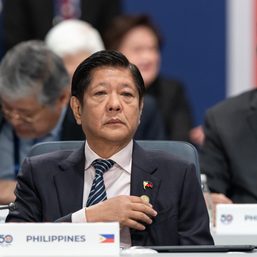
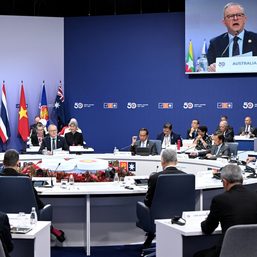
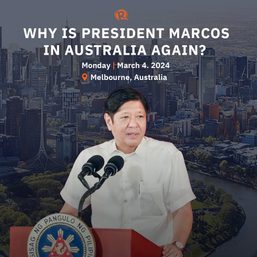
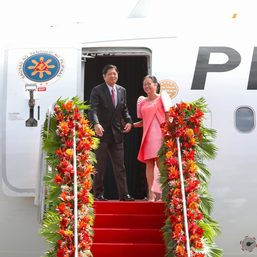
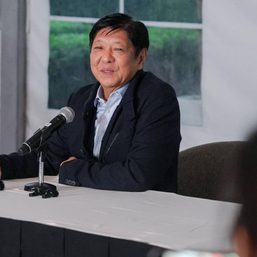
![[In This Economy] Marcos’ POGO ban is popular, but will it work?](https://www.rappler.com/tachyon/2024/07/thought-leaders-marcos-pogo-ban.jpg?resize=257%2C257&crop=255px%2C0px%2C720px%2C720px)
![[Rappler Investigates] POGOs no-go as Typhoon Carina exits](https://www.rappler.com/tachyon/2024/07/newsletter-graphics-carina-pogo.jpg?resize=257%2C257&crop=424px%2C0px%2C1080px%2C1080px)



There are no comments yet. Add your comment to start the conversation.